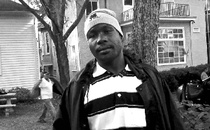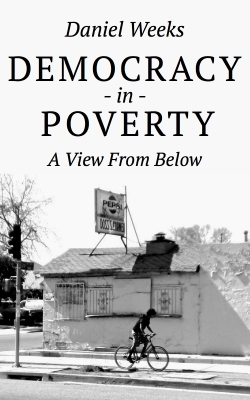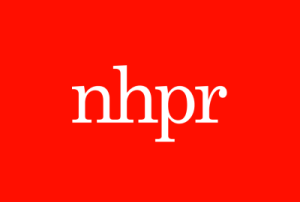 Poverty vs. Democracy in America
Poverty vs. Democracy in America
The Atlantic / JAN 6, 2014 / Comments:
50 years after Lyndon Johnson launched the War on Poverty, tens of millions of second-class Americans are still legally or effectively disenfranchised. [Read article]
 Should Felons Lose the Vote?
Should Felons Lose the Vote?
The Atlantic / JAN 7, 2014 / Comments: The poor and minorities are disproportionately locked up—and as a result, disproportionately banned from the polls. [Read article]
 Immigrant Voting: Crazy Idea?
Immigrant Voting: Crazy Idea?
The Atlantic / JAN 8, 2014 / Comments:
Until the 1920s, many states and territories allowed non-citizens to cast ballots. Given their role in American society, it’s worth reconsidering the practice. [Read article]
 How D.C. and Puerto Rico Lose Out on Democracy
How D.C. and Puerto Rico Lose Out on Democracy
The Atlantic / JAN 9, 2014 / Comments:
Is there a connection between deprivation and a lack of federal representation? The people in territories without a vote sure think so. [Read article]
 Why Are the Poor and Minorities Less Likely to Vote?
Why Are the Poor and Minorities Less Likely to Vote?
The Atlantic / JAN 10, 2014 / Comments:
Even when America’s underclass isn’t formally stripped of its ballot, a slew of barriers come between them and full representation and participation. [Read article]
 How to Solve America’s Democracy and Poverty Crisis
How to Solve America’s Democracy and Poverty Crisis
The Atlantic / JAN 10, 2014 / Comments:
Hardship is undermining the the nation’s core values. Here are a few steps to help re-level the playing field. [Read article]
 Netherlands Public Radio reporter Jacqueline Maris interviewed Daniel Weeks and boarded the Greyhound bus to report on Weeks’ new book, Democracy in Poverty: A View From Below. Click the link below to listen to the full report, broadcast on VPRO International on January 5th, 2016.
Netherlands Public Radio reporter Jacqueline Maris interviewed Daniel Weeks and boarded the Greyhound bus to report on Weeks’ new book, Democracy in Poverty: A View From Below. Click the link below to listen to the full report, broadcast on VPRO International on January 5th, 2016. George doesn’t talk much about politics but he is sure of at least one thing: “Politics rules and everybody’s not equal in politics.” To make sure I’ve captured the point, he concludes our interview by adding, “I don’t believe we’re equal, never have. George’s sentiments are not surprising to me given the circumstances of our meeting. We have just completed lunch for homeless people, a hearty paper plate of southern comfort food served with bug juice in a homey, church-run shelter presided over by the peerless “Momma Donna…”
George doesn’t talk much about politics but he is sure of at least one thing: “Politics rules and everybody’s not equal in politics.” To make sure I’ve captured the point, he concludes our interview by adding, “I don’t believe we’re equal, never have. George’s sentiments are not surprising to me given the circumstances of our meeting. We have just completed lunch for homeless people, a hearty paper plate of southern comfort food served with bug juice in a homey, church-run shelter presided over by the peerless “Momma Donna…”
 PETERBOROUGH — Daniel Weeks knows he’s not an expert on poverty. But, a two-year, 10,000-mile journey across the country on a Greyhound bus showed the campaign finance reform activist that the U.S. poverty gap has as much to do with elections as it does with social inequality. “We must start recognizing that poverty is a democracy problem. Our democracy is impoverished,” said Weeks at the Monadnock Summer Lyceum Sunday.
PETERBOROUGH — Daniel Weeks knows he’s not an expert on poverty. But, a two-year, 10,000-mile journey across the country on a Greyhound bus showed the campaign finance reform activist that the U.S. poverty gap has as much to do with elections as it does with social inequality. “We must start recognizing that poverty is a democracy problem. Our democracy is impoverished,” said Weeks at the Monadnock Summer Lyceum Sunday.









